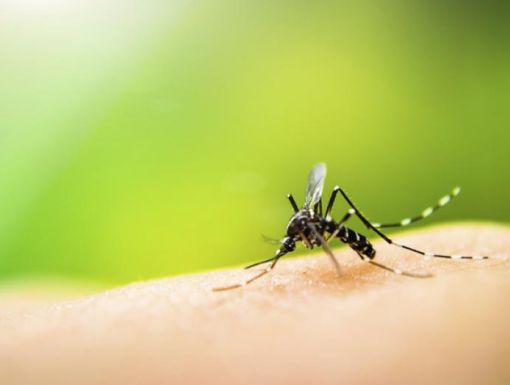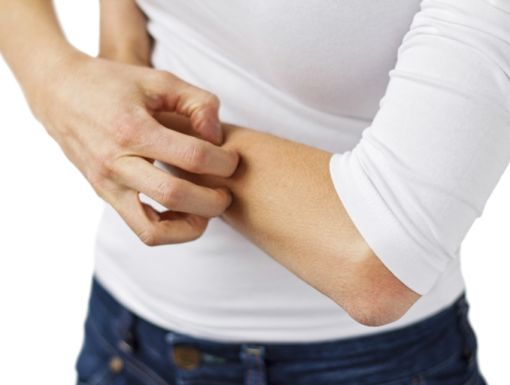
What Diseases Do Mosquitoes Carry in the United States?
Mosquitoes are more than just annoying pests. Their bites can spread serious diseases that affect people across the United States, especially in warm, humid climates. While some areas are affected more than others, it’s important to take steps to protect yourself and your family.
Mosquitoes develop quickly and can carry illnesses from one person or animal to another. The most common mosquito-borne disease in the U.S. is West Nile virus, but others such as Zika virus, chikungunya, dengue and malaria have also been reported, often linked to international travel.
Here’s a closer look at these diseases, how to spot the symptoms and how to stay safe outdoors.
What Is West Nile virus and what are the symptoms?
According to the Centers for Disease Control and Prevention (CDC), West Nile virus is the most common mosquito-borne illness in the continental U.S. Mosquitoes become infected by biting birds with the virus and then pass it to humans. However, you can’t catch it through casual contact with infected people or animals.
Most cases happen during warmer months when mosquitoes are most active. Around 80% of people who get West Nile virus show no symptoms. Others may develop mild symptoms such as:
- Fever
- Vomiting
- Diarrhea
- Rash
- Joint or body aches
Most people recover fully, but some may feel weak or tired for weeks. There is no vaccine or specific treatment, but symptoms can be managed with fluids, rest and over-the-counter pain relievers.
In rare cases, West Nile virus can cause serious brain and spinal cord infections, such as encephalitis or meningitis. Older adults and people with conditions like diabetes or high blood pressure face a higher risk. Watch for these severe symptoms:
- High fever
- Stiff neck
- Seizures
- Confusion or disorientation
- Tremors
- Vision loss
- Numbness
If you notice these signs, seek medical attention right away. Severe cases often require hospitalization.
What Is Zika virus and what are the symptoms?
Zika virus is mostly found in tropical and subtropical regions and is spread by Aedes mosquitoes. Although Zika cases are rare in the U.S., it’s still important to stay informed.
Most people infected with Zika have no symptoms. When symptoms do appear, they’re usually mild and may include:
- Fever
- Red eyes
- Rash
- Headache
- Muscle pain
Zika is especially dangerous for pregnant women, as it can cause serious birth defects if passed to a developing baby. There is no vaccine or cure, but symptoms can be eased with rest, fluids and over-the-counter medications.
What are Chikungunya, Dengue and Malaria?
While chikungunya, dengue and malaria are rare in the U.S., they are more common in other parts of the world and can still pose a threat to travelers.
- Chikungunya can cause fever and intense joint pain.
- Dengue may lead to fever, nausea, rash and body pain. Severe cases may require hospital care.
- Malaria often causes fever, chills and flu-like symptoms. If left untreated, it can lead to life-threatening complications.
If you plan to travel to areas where these diseases are common, talk to your doctor first. You may need to take medicine or follow extra precautions to avoid mosquito bites.
What attracts mosquitoes?
Ever wonder why some people get bitten more than others? Mosquitoes are attracted to:
- Dark clothing – Try wearing lighter colors. Mosquitoes use their vision to locate targets, and dark clothing stands out more in the daylight.
- Sweat – The chemicals in sweat, including lactic acid, draw mosquitoes in. Physical activity and warm temperatures can increase sweat production, making you more of a target.
- Blood type – People with type O blood tend to get bitten more often. Studies show mosquitoes are nearly twice as likely to land on someone with type O than type A.
Other factors that may attract mosquitoes include body heat, carbon dioxide from breathing and certain skin bacteria. Pregnant women may also be more attractive to mosquitoes because of increased body temperature and carbon dioxide output.
How do I prevent being bitten by mosquitoes?
The best way to avoid mosquito-borne diseases is to prevent bites. Here’s how:
- Remove standing water, including in flowerpots, birdbaths, buckets, gutters and old tires.
- Wear insect repellent with DEET (10%–30% for adults, under 10% for kids).
- Dress in light-colored, long-sleeved shirts and pants.
- Avoid going outside at dawn or dusk when mosquitoes are most active.
- Cover strollers and playpens with mosquito netting.
How do I treat mosquito bites at home?
Most mosquito bites are itchy but harmless.
Try these steps to reduce discomfort:
- Wash the area with soap and water to help prevent infection.
- Apply an ice pack for 10 minutes to reduce swelling and numb the area.
- Use anti-itch cream or a baking soda and water paste to relieve irritation.
Avoid scratching, as this can break the skin and lead to infection. Keeping fingernails trimmed short can help reduce damage if you accidentally scratch. For children, covering the bite with a bandage may help stop them from scratching.
In some cases, mosquito bites can cause allergic reactions. Signs include hives, large areas of swelling or difficulty breathing. These symptoms are rare but require immediate medical attention.
If the bite becomes red, warm or swollen, or if red streaks appear, see a doctor right away. These may be signs of an infection that needs treatment. Most bites heal within a few days with basic care.
By taking simple steps, you can enjoy the outdoors while lowering your risk of mosquito-related illnesses.
Learn more about Joseph Heneghan, MD, or schedule an appointment today.



